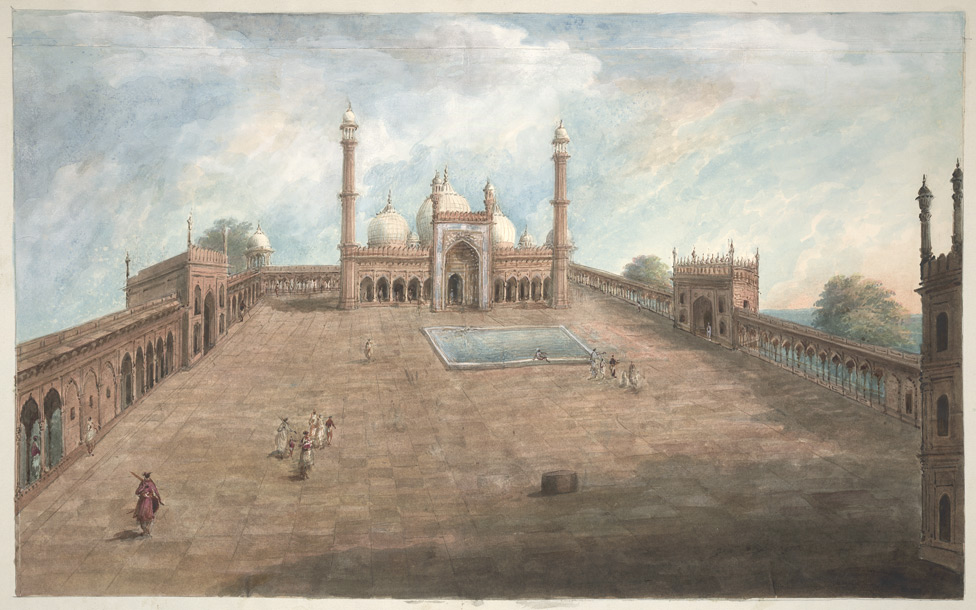FWP:
Should it be idhar , or udhar ? Arshi doesn't give us a reading. Hamid chooses idhar , and that makes sense, because it goes well with the use of ānā .
You'd think the more biographically-minded commentators would be all over this one, since it presents itself as a direct, unequivocal statement, in the first person singular, and it also corresponds very well to what we know about Ghalib's life. In the letter quoted by Azad above, for example, Ghalib first fantasizes for himself an impeccable kind of religious behavior, then brushes it away in a single sentence ('Now listen to the true state of affairs'). Apparently the idea of such pious behavior from him is so absurd in itself as both to amuse Majruh, and to require no explicit labeling of the kind that Azad felt it necessary to provide for the benefit of those who didn't know Ghalib the way Majruh did. But not one of the commentators I've looked at has a single word to say about the 'natural poetry' possibilities of this particular verse!
Since the first line makes it clear that the first-person
speaker does know the religious merit of properly pious behavior, the second
line can imply either (1) that the speaker is distraught at his inability to practice
what he knows to be virtuous behavior (the line should then be read in a tone
of frustration and self-reproach); or (2) that he basically doesn't give a damn
(the line should then be recited rakishly, with a wink, or else languidly, punctuated with a metaphorical yawn).

Azad:
[To illustrate Ghalib's lack of self-pity and his lively sense of humor, Azad quotes from one of his letters to Majruh:]
From the first of Ramzan to this point, it is all tongue in cheek. Because all the things in these phrases are ones from which Mirza would run a mile. And this letter was written after the Rebellion [of 1857]. At that time, in Delhi these things had become mere dreams and fantasies.
==Azad: Pritchett and Faruqi, pp. 491-92